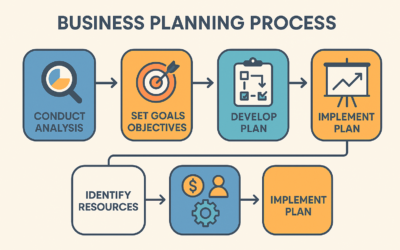Diligent accounting is one of the less glamorous but crucial aspects of your small business. Careful bookkeeping can not only assure that you are paying the proper amount, but you can also find ways to save on your tax liabilities by properly tracking your expenses.
These tips can keep your bookkeeping clear for filing purposes and make it easier to sell your small business all while saving you money along the way.
Organize Early
Many small business owners make the mistake of forgetting about itemizing their expenses and deductions until April begins to rear its ugly head. Understandably, the first few months of operation are often a flurry of different tasks and obstacles to overcome, but even your firm’s minor chores deserve attention.
Keep a constant track of your expenses instead of falling behind to rush and catch up. This doesn’t have to be a matter of stashing away heaps of paper receipts and invoices.
Investing in a scanner and organizing your finances can make it easy to establish your paper trail should the IRS approach you for an audit. This will save you a myriad of accounting fees and court costs if you find yourself in a legal quagmire.
Digital record management is far better for both your company and the environment when compared to the days of hoarding paper products. Over time, you might save on stationary alone by having your finances clearly and immediately accessible by digitizing your information.
Consider Home Office Deductions
Don’t be afraid to write off business expenses for your home office. Some worry that deducting business items kept in your home is practically begging for an audit. Being eligible for a home office deduction means that the space must be used frequently and exclusively for business purposes, so this should be well established. For example, a place in your home which is exclusively used to store inventory.
Beginning in 2013 tax returns, the IRS began offering a simplified option. This particular method for 2021 uses a pre-determined rate of $5 a square foot with a maximum of 300 square feet.
As long as you are meeting the strict but clear requirements for the home office deduction, claiming it does not put you at increased risk for an audit.
Claim Advertising Costs
Believe it or not, advertising and promotional costs (outside of lobbying) are completely tax-deductible. This includes everything from running a social media campaign, printing and handing out paperwork such as business cards or flyers, and even hiring someone to design a website or business logo.
This is a business expense that entrepreneurs who are not very experienced in business accounting or tax law can easily overlook, but it can be a very beneficial deduction. This is especially true for young firms that are spending a great deal of money on marketing campaigns to gain fresh exposure.
Track Business Use of Your Car
All costs associated with operating an exclusive company vehicle can be considered deductible, but this even applies to instances when personal vehicles are used for company purposes. If you use a personal car to visit clients or deliver products, then that mileage, fuel, and maintenance can be considered tax-deductible.
New firms often make use of otherwise personal vehicles to get business done. Luckily, several apps can track the corporate use of your car to add that to your tax information and make sure that you are minimizing your firm’s tax liability.
Constant organization and transparency are key to making sure that your small business doesn’t become tangled in an audit, but many other loopholes can save your entrepreneurial project money.
Digitize your financial documents regularly, account for home office space if it meets the requirements, deduct all your advertising programs, and be sure to keep track of when private vehicles are being used for company purposes.
Additional Tax Strategies
After a business has been in operation for several years and has grown into a business with significant revenues of over a million a year, there are often more sophisticated strategies which can be utilized to reduce your tax liability, which may include the creation of multiple-entities for asset protection and tax savings purposes. However, for those strategies, you should engage the legal services of attorneys who have expertise in those areas of the law rather than relying on either your CPA or business attorney.
Global Resources can provide you with even more insight into how you can maximize your tax savings with proper advance planning and recommendations on developing a strategic tax plan using the appropriate professional services needed to accomplish the desired result.

0 Comments